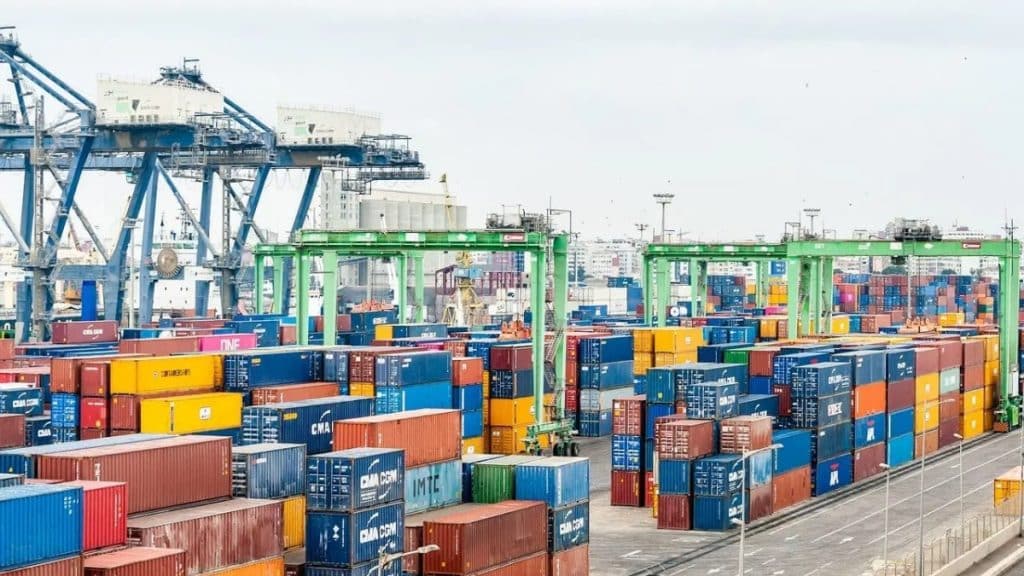Shipping containers play a crucial role in the logistics and transport industry, facilitating the delivery of goods across vast distances efficiently and securely.
What are Shipping Containers?
Shipping containers are standardized metal boxes used for storing and transporting goods via trucks, trains, and ships. They come in various sizes, with the 40ft container being a common choice.
Importance of Shipping Containers in Logistics
The use of shipping containers revolutionized the logistics industry by streamlining the transport process, optimizing space utilization, and ensuring the safe delivery of cargo to different destinations.
Types of Shipping Containers
There are several types of shipping containers available, including new containers, used containers, and custom conex options, each catering to the specific needs and preferences of customers.
New Shipping Containers
Features of New Shipping Containers
New shipping containers boast quality construction, pristine condition, and sturdy build, making them ideal for various applications such as storage, housing, or custom projects.
Advantages of Buying New Shipping Containers
Investing in new shipping containers ensures reliability, durability, and longevity, offering peace of mind to buyers regarding the container’s performance and structural integrity.
Pricing and Availability
Although new shipping containers may come at a higher price point, they provide value for money due to their brand-new condition, customizable features, and availability from reputable suppliers.
Used Shipping Containers
Benefits of Buying Used Shipping Containers
Opting for used shipping containers presents cost-effective solutions for various needs, including storage, accommodation, or DIY projects, without compromising on quality and functionality.
Inspection and Quality Check
Before purchase, used shipping containers undergo thorough inspection and quality checks to ensure they meet industry standards, guaranteeing reliable performance and safety for the buyers.
Budget-Friendly Options
Used shipping containers offer budget-friendly options for individuals or businesses seeking economical storage or transport solutions, providing a sustainable and practical alternative.
Custom Conex Containers
Custom Conex containers offer unique flexibility in design and functionality, catering to the specific requirements and preferences of customers looking for personalized shipping solutions.
Customization Options for Conex Containers
Conex containers can be customized with features such as doors, windows, insulation, and ventilation to tailor the container to the intended use, whether it’s for storage, housing, or other purposes.
Designing a Container Home
The trend of designing container homes using Conex containers is gaining popularity due to their durability, eco-friendliness, and cost-effectiveness, providing a modern and sustainable housing solution.
Considerations for Custom Conex Containers
When opting for custom Conex containers, factors like structural integrity, weather resistance, and interior layout must be considered to ensure the container meets the desired functionality and aesthetic requirements.
Shipping Container Transport
Efficient shipping container transport is essential for seamless logistics and timely delivery of goods, employing various methods and best practices to overcome challenges encountered during transportation.
Methods of Transporting Shipping Containers
Shipping containers are transported via trucks, trains, ships, and intermodal systems, utilizing different modes of transport based on distance, cargo type, and speed requirements to ensure efficient delivery.
Best Practices for Container Transport
Implementing proper securing, stacking, and loading techniques, as well as adhering to weight limits and safety regulations, are crucial best practices for container transport to prevent damage and ensure smooth delivery.
Challenges in Container Transport
Challenges in container transport include navigating through congested ports, coordinating transfers between different modes of transport, and mitigating risks of theft or damage during transit, requiring strategic planning and coordination.
Container Flooring and Modifications
The quality of container flooring and strategic modifications play a vital role in enhancing the usability, security, and longevity of shipping containers, offering customized solutions for various applications.
Importance of Quality Flooring in Containers
Durable and high-quality container flooring is essential for withstanding heavy cargo loads, ensuring structural integrity, and preventing moisture ingress, highlighting the significance of investing in reliable flooring options.
Popular Modifications for Shipping Containers
Popular modifications for shipping containers include adding doors, windows, partitions, shelving, and insulation to enhance functionality, security, and comfort, transforming standard containers into versatile and personalized spaces.
Enhancing Security through Modifications
Security modifications such as lock systems, alarms, and reinforced walls provide enhanced protection against theft, vandalism, and unauthorized access, ensuring the safety of goods stored within the container.
Shipping Container Zoning Laws
Shipping container zoning laws dictate the regulations for using containers as dwellings or structures in specific areas. Understanding these laws ensures compliance with local ordinances and land use requirements.
Understanding Zoning Regulations for Container Homes
Local zoning regulations dictate where and how shipping containers can be used for housing or commercial purposes. These regulations help maintain neighborhood aesthetics, safety standards, and property values.
Compliance and Permits
Compliance with zoning laws often requires obtaining permits for container construction projects. Permits ensure that the containers meet structural and safety standards set by authorities, ensuring legal compliance throughout the process.
Also Read : Gold Price Fintechzoom
Navigating Legalities with Container Construction
Navigating through legalities involves understanding building codes, land use restrictions, and zoning ordinances related to container construction. Compliance with these legal aspects is crucial for a successful container project.
